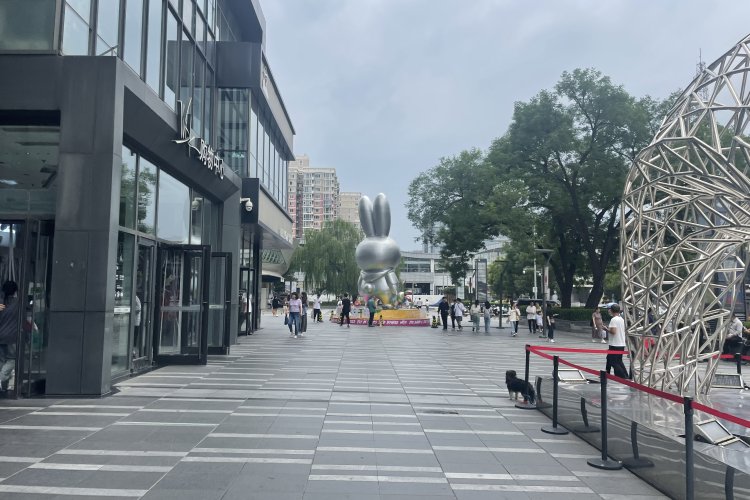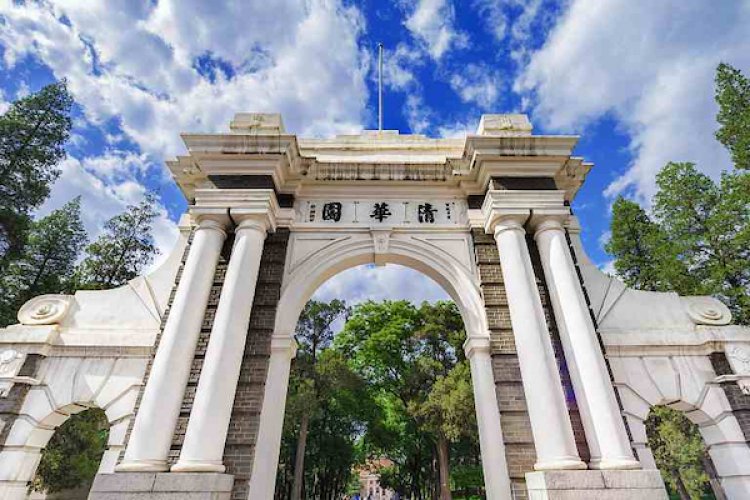WDK Watch: "The Whole Concept of Citizenship is Quite Outdated"
In Wudaokou Watch, we profile a different Beijing-based student from abroad each week to hear about their life in China's capital.
My name is Carla Maria (pictured above left), I'm from Germany. I study film production at Beijing Film Academy (BFA). I came to China in 2016 for a film festival and I decided to come back and live here.
Most people don't realize that Germans have a great sense of humor. It is just very unique, rather dark and bitter, that's why foreigners don't get it, unfortunately. But still, it's a good reason to make fun of it.
I traveled a lot starting from an early age, so when I arrive at a place in the world I never have any real expectations. But by going places that are so different from my place of origin I started to figure out what home actually means.

Identity is a weird thing, that changes, again and again, every day, and in my opinion, and it is not connected to any patriotic or home country stuff. My perspective on this concept of identity has radically changed: it isn't static, but undergoes constant change.
Would I ever try to become a Chinese citizen? Sounds like heaps of bureaucracy so absolutely not. I love living in Beijing and I'm amazed by lots of things. But it is 2020 so the whole concept of citizenship referring to the fact that you belong to a place is quite outdated. Instead of asking 'where are you from?' we should ask 'where are you local?', as the place where you are born doesn't necessarily say too much about you, at least nothing important. Maybe my Chinese friends are closer to me than a German person – just because of the fact that we are both German – could ever be. Chinese citizenship doesn't allow any additional citizenship, and German passports are quite helpful when it comes to visa regulations.

If there was something like world citizenship, this would be something I'd be eager to get, just for the idealist approach. For this, I would even accept the most probably required madness of bureaucracy.
Everybody should experience Beijing's food before they die. I'm amazed by the variety and I can't tell what's my favorite. In Germany, food is mostly about meat and potatoes. I can appreciate that but it can't compete with a variety of Chinese food. I can't tell what you what's best, but some friends took me to a lamb spine hot pot (羊蝎子 yáng xiēzi) restaurant recently and it was absolutely delicious. There are lots of places I like to visit – I love exploring new spots.

I don't care too much about clubs and bars, most of my spare time I spend at the China Film Archive watching films.
The thing I'll miss the most about Beijing life is the optimism of the people. Here nothing seems to be impossible.
Chinese and German systems couldn't be more different. It is quite remarkable that Chinese policies often follow long-term plans. In China, people wonder where they see themselves in 50 years, while in Europe parties wonder how to win the election in four years. This difference, and especially its consequences, is quite remarkable.
Germans love to discuss things and I think discussions can help you to become aware of many different aspects of life as nothing is black or white. I miss this passion sometimes.

On my second day in Beijing, I wanted to go east and I thought taking Line 13 would be a good idea. I'll never make that mistake again.
Five years from now I want to be somewhere making documentaries. Having a job that allows me to travel between Europe and China would be ideal.
If I could give my pre-China self some advice, I would tell myself to study Mandarin much harder than I did before coming to Beijing. I felt quite disconnected during the first year.
READ: "If I Could Give My Pre-China Self Some Advice, It Would Be to '多喝热水!'"
Images courtesy of Carla Maria




